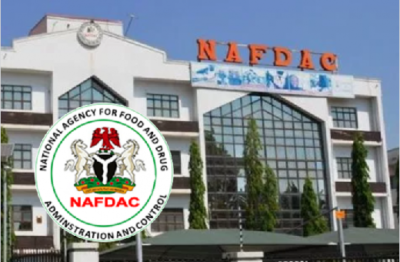
The recent strike by employees of the National Agency for Food and Drug Administration and Control (NAFDAC), under the aegis of the Senior Staff Association of Statutory Corporations and Government-Owned Companies (SSASCGOC), is a stark reflection of the fundamental flaws that threaten the very core of Nigeria’s public health and economic stability. NAFDAC, a vital institution tasked with safeguarding the quality and safety of food, medicines, and cosmetics, has been crippled by an industrial action that stems from grievances over unmet demands.
According to a statement by the Trade Unions Congress (TUC), to which SSASCGOC belongs, the decision to commence the industrial action followed NAFDAC management’s failure to address the workers’ concerns after a series of meetings had ended in deadlock. The demands comprise issues relating to staff promotion and general welfare
The role of NAFDAC in Nigeria’s regulatory framework cannot be overstated. This is the agency that stands between the Nigerian populace and the dangers of counterfeit drugs, unsafe food products, and substandard medical supplies. It is the firewall that protects Nigerians from the ravages of unsafe consumables. It goes without saying that when this firewall is weakened through such factors as workers’ strike, the floodgates to public health disasters are wide open, leaving millions of Nigerians vulnerable.
An equally concerning consequence of the strike is the halt in NAFDAC’s regulatory processes. Thousands of new products, including essential medicines and food items, are now stuck in limbo, awaiting the agency’s approval before they can enter the market. This bureaucratic paralysis is particularly perilous in the healthcare sector, where the availability of life-saving medications is a matter of life and death. Nigeria is already battling with a high disease burden, from malaria to HIV/AIDS, and the inability of NAFDAC to process drug approvals compounds an already critical situation.
Moreover, the economic implications are severe. In a nation already struggling with inflation, unemployment, and slow economic growth, the strike has thrown another wrench into the works. The pharmaceutical and food industries, which rely heavily on NAFDAC’s timely approvals, are feeling the pinch. The delay in bringing new products to market is eroding investor confidence, both local and foreign, and stalling economic activities. Foreign investors are particularly wary of regulatory uncertainty, which this strike exemplifies.
The agricultural sector, too, is not spared from the strike’s ripple effects. As the government continues its push towards agricultural self-sufficiency and food security, NAFDAC’s regulatory oversight is crucial for ensuring that agricultural inputs, such as fertilisers, pesticides, and animal feed, meet safety standards. Farmers across the country rely on these inputs for productivity, and any disruption in their availability could lead to reduced agricultural output, threatening food security.
Public health surveillance, another critical function of NAFDAC, has been brought to a halt. The agency is responsible for post-market surveillance to ensure that products on the market continue to meet safety standards. With the strike in effect, the risk of counterfeit and substandard products infiltrating the market is alarmingly high.
Nigeria is already known to be a hotspot for counterfeit drugs, with the World Health Organisation estimating that up to 70 per cent of drugs in circulation in some areas are fake. This situation presents a ticking time bomb for public health, as unregulated products flood the market, posing life-threatening risks to consumers.
Amid these mounting challenges, NAFDAC’s leadership has attempted to appeal to the striking workers. Professor Christianah Adeyeye, the agency’s director-general, has acknowledged the workers’ grievances and promised steps toward addressing their demands, particularly with regard to staff promotions. She highlighted the agency’s efforts to secure the necessary approvals from the Head of Service for expanding vacancies to accommodate qualified personnel.
At its core, this strike is about more than just wage disputes or administrative disagreements. It speaks to the broader systemic issues that plague Nigeria’s public institutions: chronic underfunding, neglect, and a lack of political will to prioritise the health and wellbeing of the population. It is a reflection of a government that has, time and again, failed to recognise the critical importance of regulatory agencies like NAFDAC in the broader framework of national development.
To resolve this crisis, the Nigerian government must engage in meaningful dialogue with the aggrieved workers and commit to providing the necessary resources to enable NAFDAC to function effectively. As the health and safety of millions hang in the balance, there is no room for dilly-dallying. This is a moment for decisive action. Nigeria’s regulatory institutions are the backbone of public health and economic stability, and they must be treated as such. If NAFDAC fumbles, the entire nation will feel the impact—on its healthcare system, its economy and its general wellbeing.











[…] post NAFDAC Workers’ Strike and Nigeria’s Wellbeing appeared first on […]